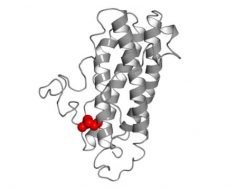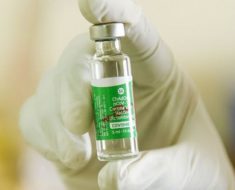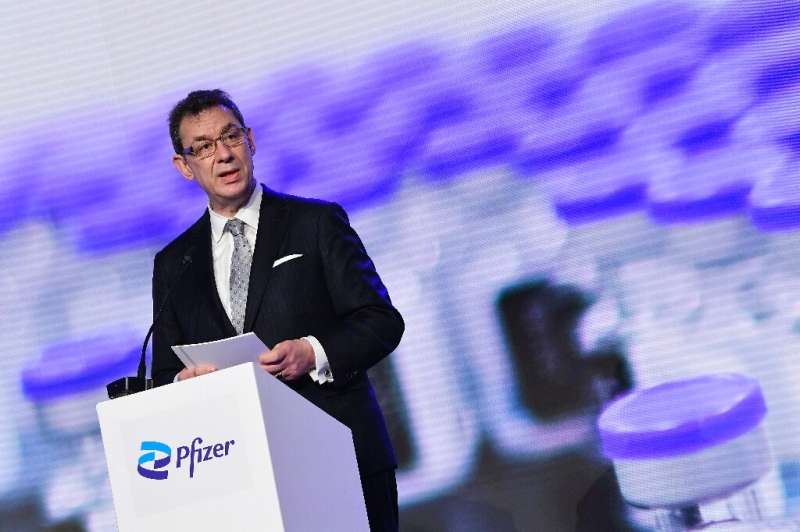
US pharmaceuticals giant Pfizer is planning a new version of its coronavirus vaccine that can be stored in a standard freezer and comes diluted and ready for use, its CEO told AFP on Friday.
The vaccine developed by Pfizer and Germany’s BioNTech is already a mainstay in Europe’s efforts to control the pandemic—but it is a challenge to ship and protect.
The current version must be stored at minus 70 degrees Celsius (minus 94 degrees Fahrenheit), limiting its distribution to specially equipped vaccination centres.
But Pfizer’s chief executive Albert Bourla told AFP in an interview that a new version is in the pipeline and that he was optimistic the vaccine will also prove effective against new virus variants.
Indian variant
Bourla said Pfizer has large amounts of real world data from some of the variant outbreaks.
“We have already data for the UK one—I hate using the countries, but people know them like that—which is very prominent in Israel… efficiency was 97 percent,” he said.
“We have data from South Africa, with the South African variant, and overall the efficacy was 100 percent. And also have data from Brazil. And it looks also this is very well controlled.”
Pfizer has not yet compiled sufficient data on the efficiency of its vaccine against the so-called Indian variant, the latest to raise concerns that a new wave of infections could overcome the immunisation drive.
But he said he was “optimistic” the vaccine would prove effective, and that the firm’s mRNA technology can be adapted to counter new strains.
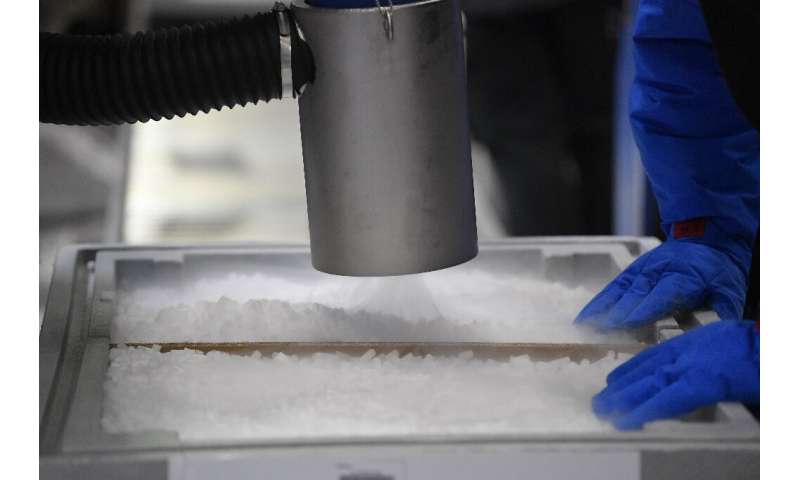
“The thing that makes me feel more comfortable is that we have developed a process that once a variant becomes a variant of concern, we should be able to have a new vaccine within 100 days,” he said.
“It’s a tough target, but I am very comfortable that we should be able to do it.
“And because of the effectiveness of this mRNA technology, I believe that variants will not become an issue, we’ll be able to control them.”
Keeping cool
The European Union is betting big on Pfizer’s relatively expensive vaccine, but there are concerns that the difficulty of keeping it at very cold temperatures will make it hard to distribute in poorer countries.
But here again Bourla was confident.
“We are doing actually two things on this front,” he said.
The US Food and Drug Administration allows the vaccine to be kept at minus 20 Celsius in a standard freezer for two weeks and Bourla thinks that could be extended.
“And we are about to generate the data for another two weeks. So that this formulation can be stored, let’s say, a month in minus 20 if we get approval for that,” he said.
“On the other hand, we are also working with a new formulation which is much improved, that will be ready to use: that means you don’t need to dilute the vaccine, it will come diluted.”
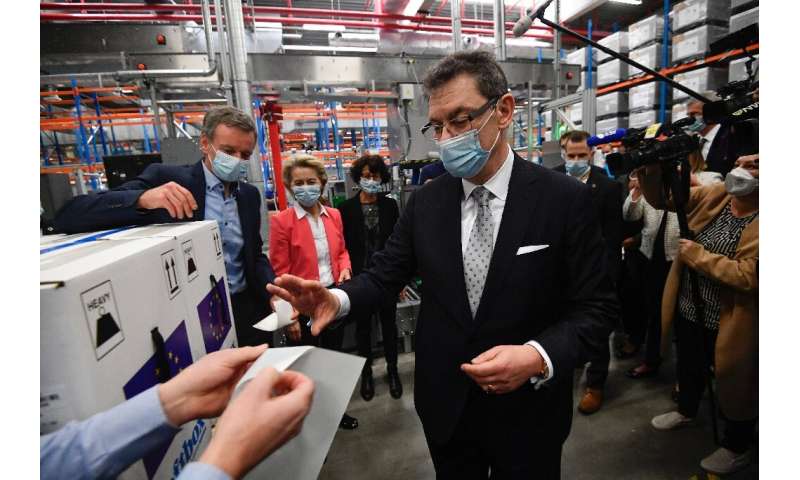
Pfizer hopes the vaccine will able to be stored for two to three months in normal refrigeration and an additional three months in a freezer, Bourla said.
“So a total of four-to-six months outside the minus 50 or 70… we believe we’ll be able to have it if we are successful in summer.”
Higher price justified
Leaked price details suggest that the Pfizer vaccine is many times more expensive than, for example, the competitor product from UK-based AstraZeneca, which has failed to meet delivery promises.
But Bourla says the higher cost is justified.
“Our strategy is to try with a pricing (that is) able to provide equitable access to all,” he said. Equitable means that more vaccine doses are made available to countries that need it more.
“So we have one tier of pricing, which covers all the high income countries, Europe is included in that, the US is included in that, Japan, Canada, all the high income countries,” Bourla said.
“I don’t want to go to what is the price for each one country, but at the largest it is the cost of a meal. So I would say for the value that the vaccine brings, we price that very, very reasonably,” he said.
For countries defined as middle-income by the World Bank, “the price is almost half of what we have in the high-income countries,” the CEO said.
Source: Read Full Article



